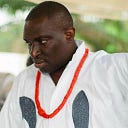Efewedo
Lessons while growing up in Edo.
My maternal uncle Paul Omoruyi was a customs officer, he is now retired and a successful businessman in Lagos. He has been an inspiration to me in many ways. He was the first relative I knew to buy an expensive sports car, a Nissan ZX with retractable headlights.
Unfortunately, the car was wrecked when a goat strayed into its path on the Benin-Shagamu expressway. The car was written off. It was a miracle that he survived the accident without any injury.
I was surprised at how easily he wrote it off and bought a brand new Honda Accord EX as a replacement. I loved that car too. He taught me not to get too attached to material things as they are always disposable. It was that belief that things could always be improved, replaced, or upgraded that made him seek wealth.
His love for cars was also shared by another uncle he grew up with, his cousin and my uncle “Henry Imasekha.” Uncle Henry and Uncle Paul are jointly responsible for my craze for cars and the number of cars that I have owned. I also learned from them not to be too attached to them or material property. They are tools of happiness and not gods to be served.
Uncle Paul was the first in my mother’s immediate family to move to Lagos and he paid for my first airplane trip as a child. It was his love for music together with the same passion my father shared that made me also like music. One track they both loved is by the Edo musical legend — Osayomore Joseph, titled “Efewedo.”
Efewedo in Edo means “Wealth greets you.” The musician was providing social commentary (filled with Edo proverbs) on how people are envied because of their progress by others who haven’t yet walked in their shoes. He gave many examples starting with the wealthy man who bought a car.
He then talks about the one who has built many houses and is seen by others as a thief. He talks again about the envy of the one who loves fashion and has plenty of clothes — someone like my father.
He ends talking about himself and praising himself for his achievements and showing how hard he has worked and why he doesn’t deserve hate or envy. The chorus line — “Agbon gbowman no’se” means that the world kills people because of beauty. He wishes the same wealth, achievement, and progress on everyone in the end.
The song is basically a hip hop rap song about “haters” in Edo. 50 Cent or Tupac could have used the same lyrics in English and it would also be an instant hit. It was a wildly popular song in the 80s’ with a positive message and ending. Osayomore didn’t wish death on his haters as the typical hip-hop musician would do, he wished them progress.
This was how I was brought up. I was brought up not to envy people but wish them well and in the process welcome the same progress they have made to myself.
“Efewedo” shows that wealth and prosperity can be achieved by anyone as we are all the same. It was why I have never believed that there was anything impossible for me to achieve as long as a human has already done it.
I have always seen the progress of others as a challenge for me to work harder on mine. I have also learned from Osayomore and my relatives to also wish for progress and prosperity also for the less fortunate.
They say Edo people are proud people and it is true. We are proud of our identity and where we have come from. We are proud of our ancestors and all they have achieved to create a path for us to achieve more. We are proud but we are not arrogant. We have a culture of goodwill and not envy. Envy is seen as a terrible vice, it is discouraged.
As I grow older, I now understand the reason why we were reminded of our history always as Edo families. We had to have a reason to be content with ourselves and not have misgivings. We had to have a reason to also want to achieve as our ancestors had achieved. We had to have a sense of family and belonging.
My father “Michael Nosa Asemota” died nine years ago today on the 25th of May 2011. I play this song today as a tribute and remembrance of him and his life. He lived the core Edo principles I stated above. He gave everything instead of taking it all. I wish he had lived longer but I am grateful for the little I learned from him.
Efewedo is my philosophy. I welcome wealth and prosperity to myself because I wish others the same.
Special thanks to my boss Kingsley Uyi Idehen for reminding me of this classic.
